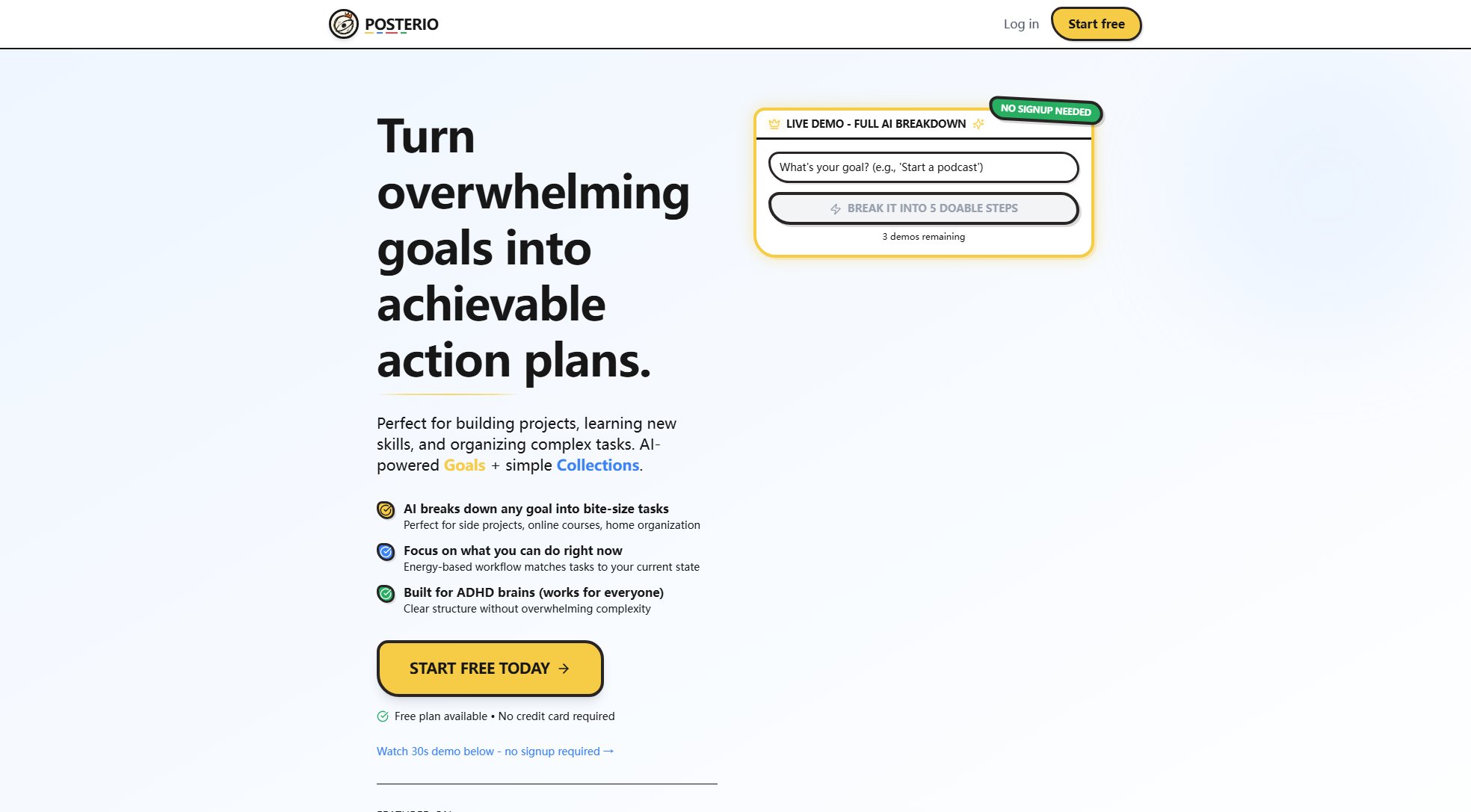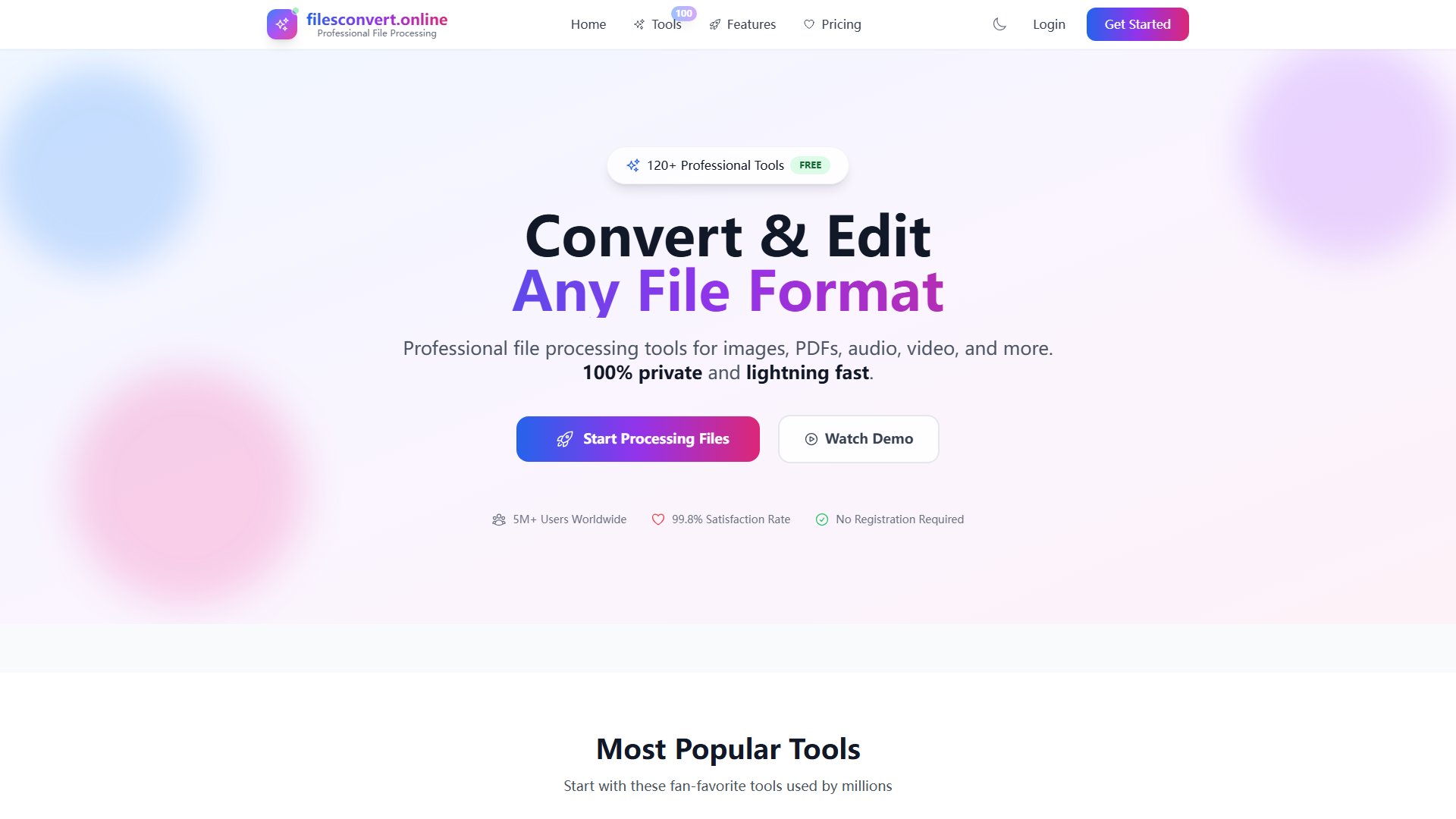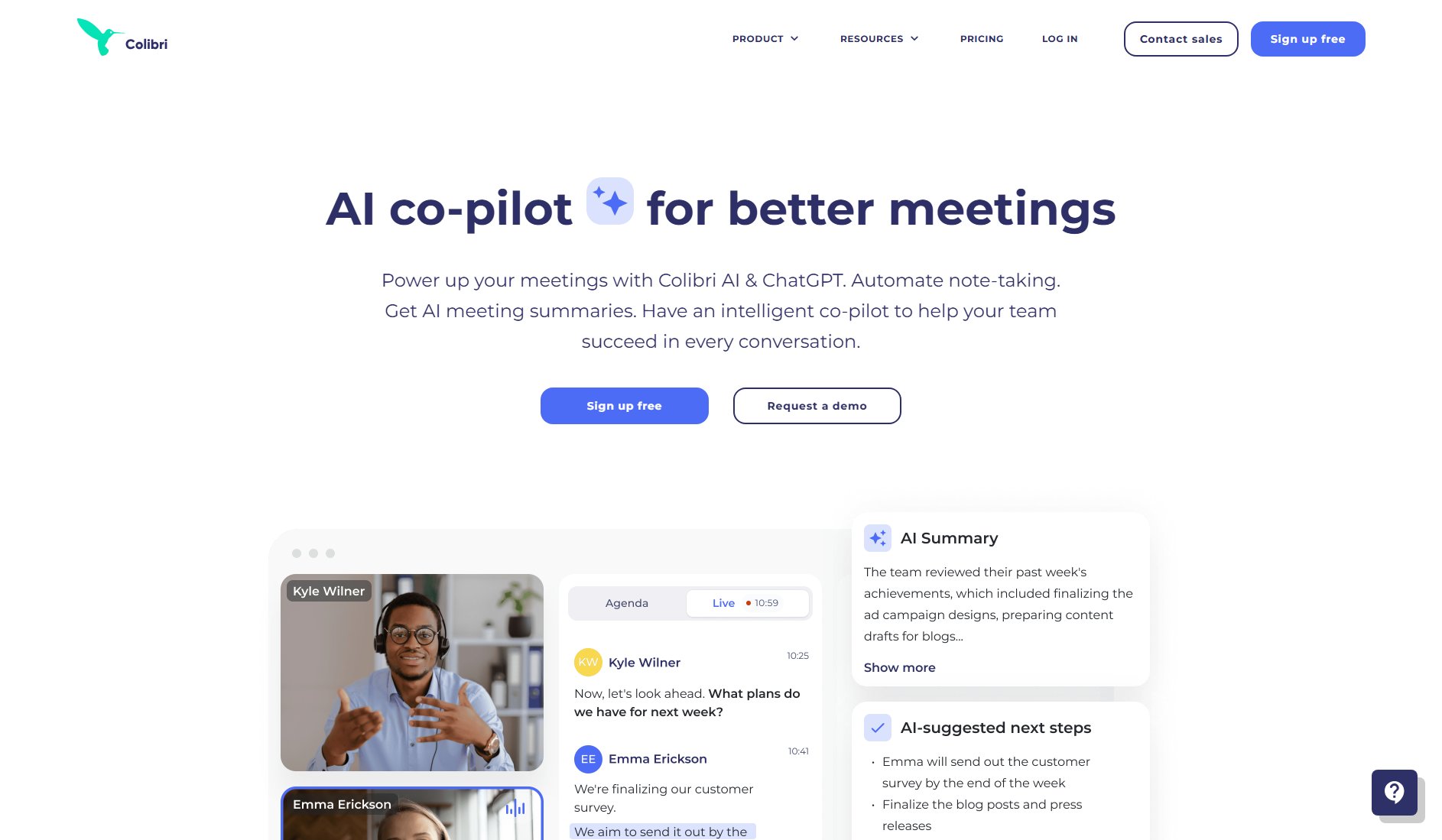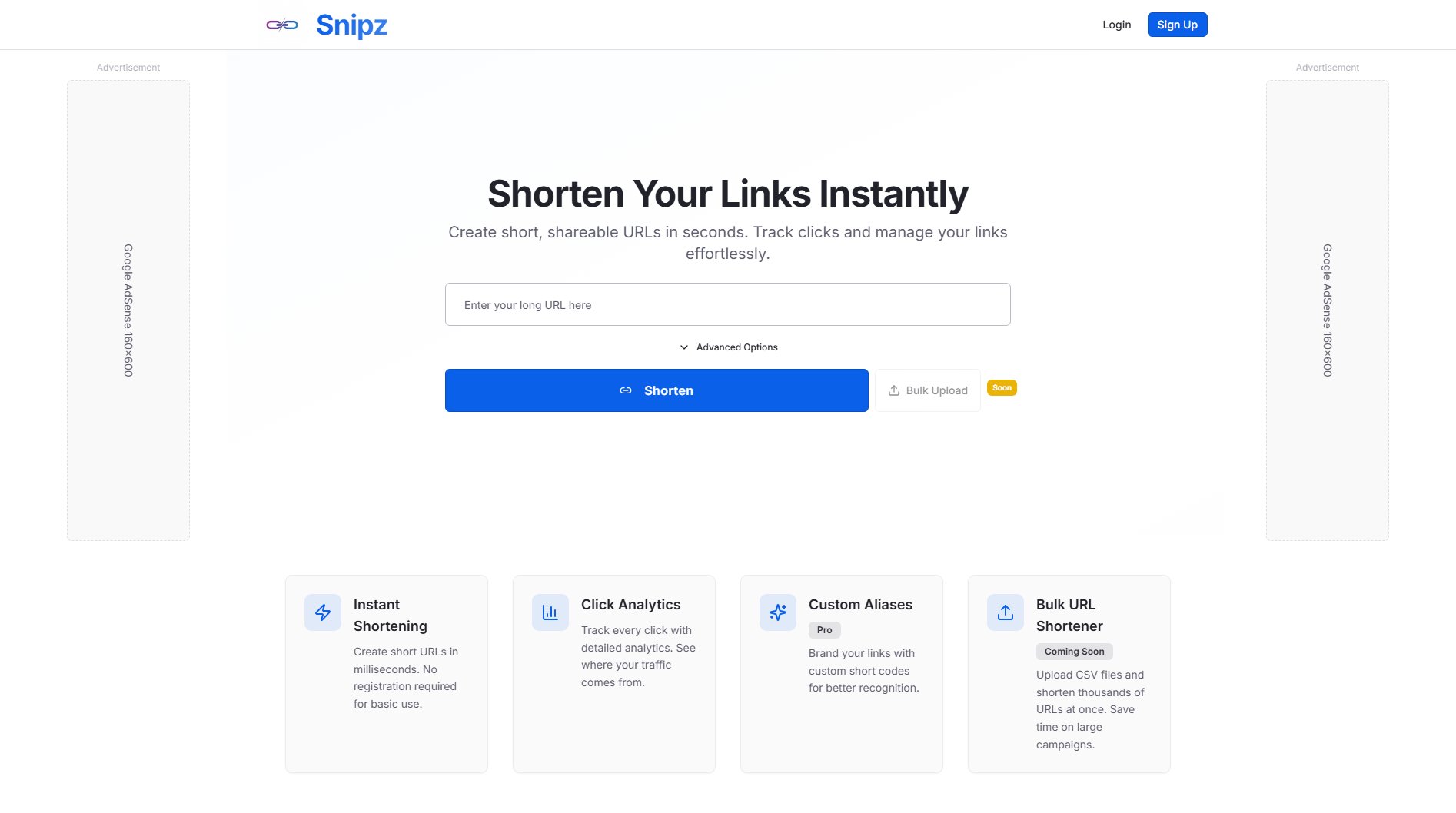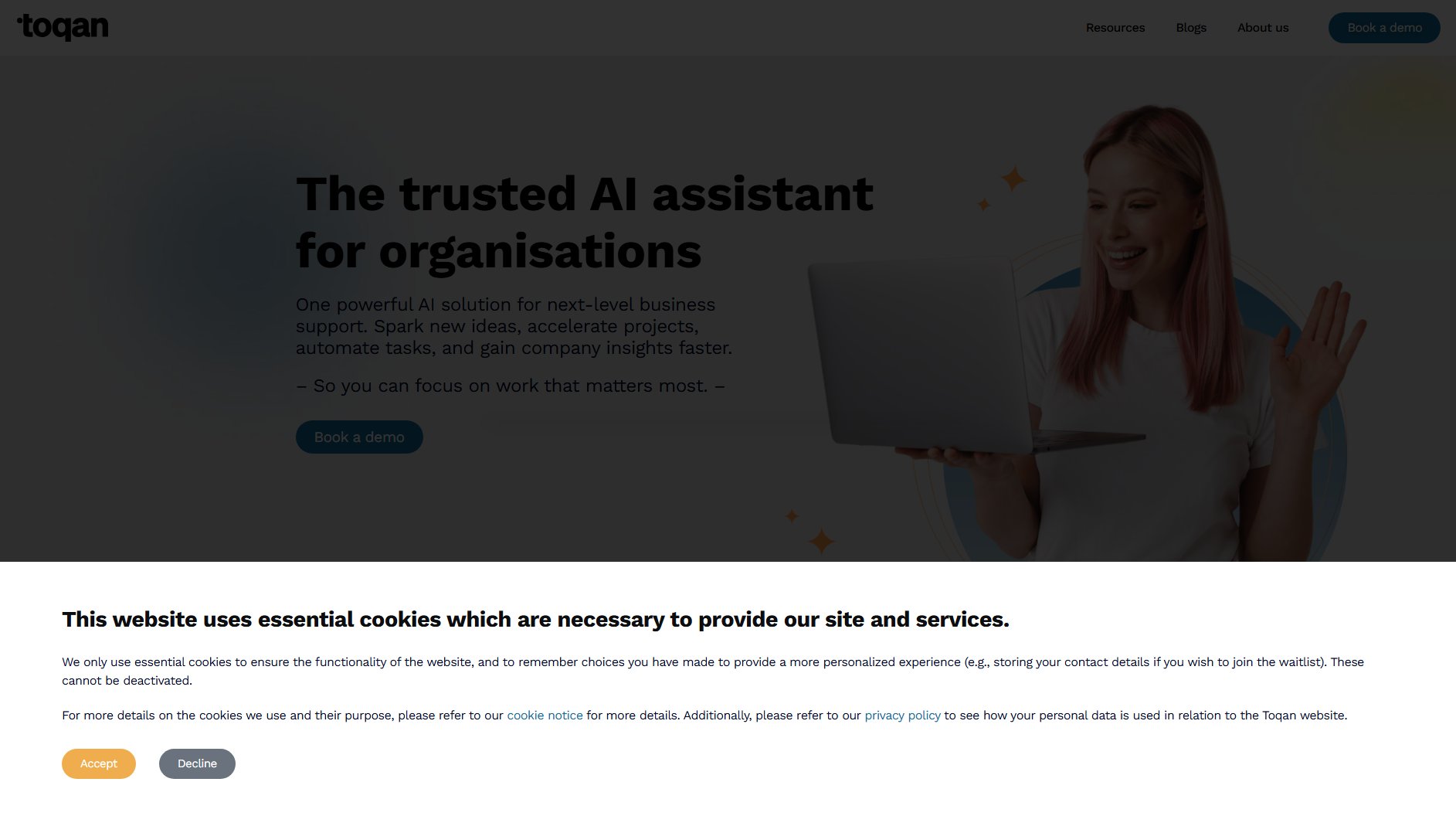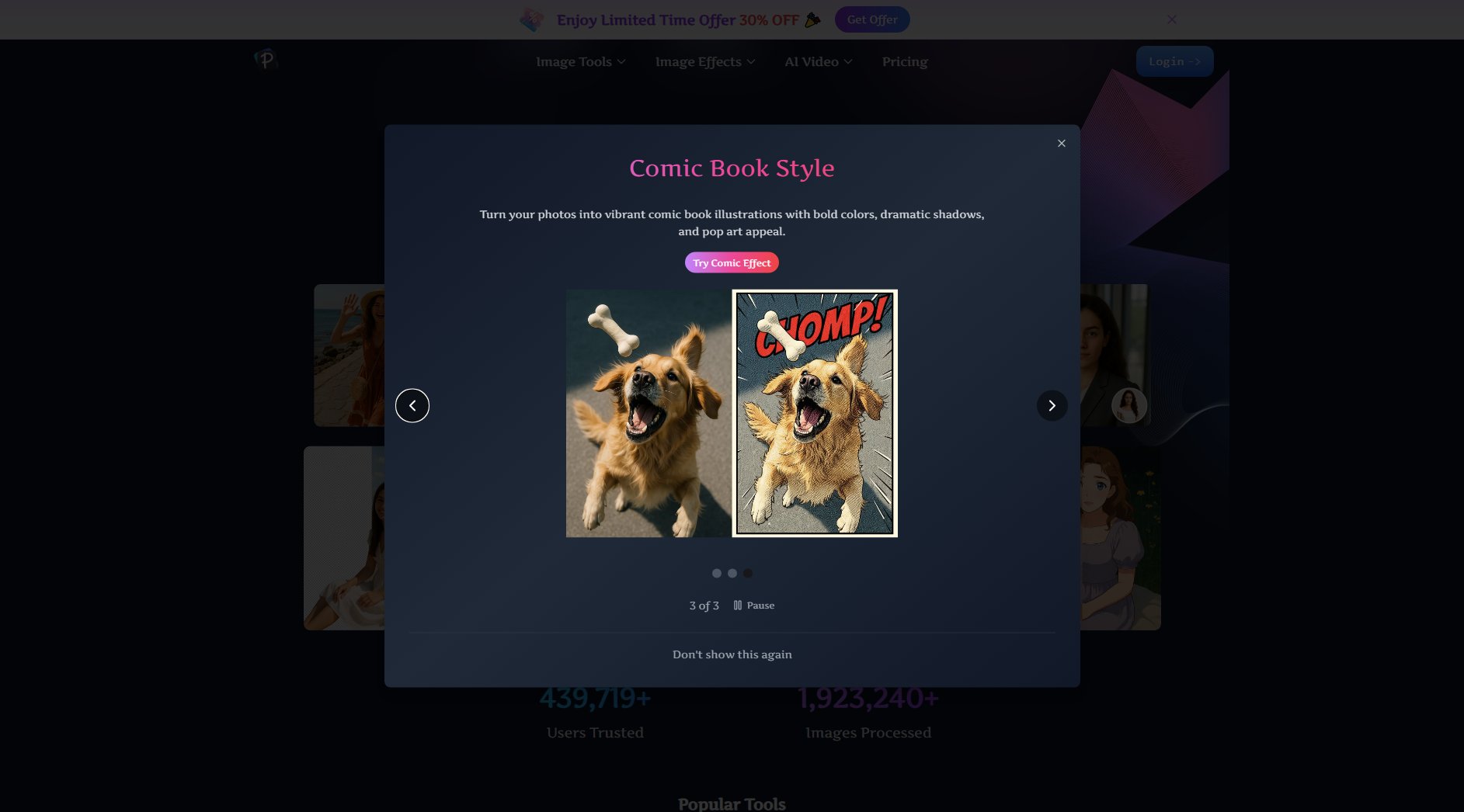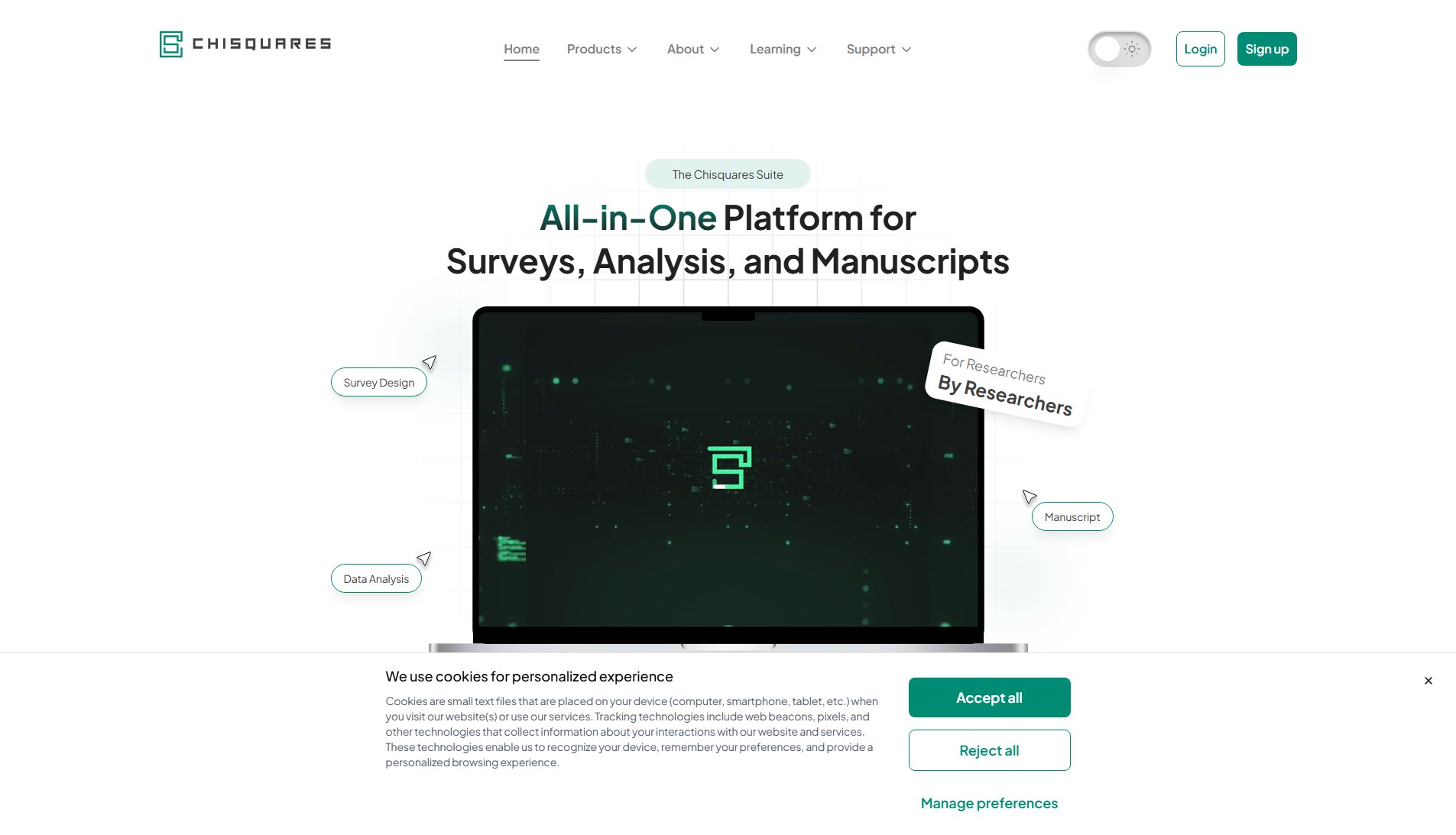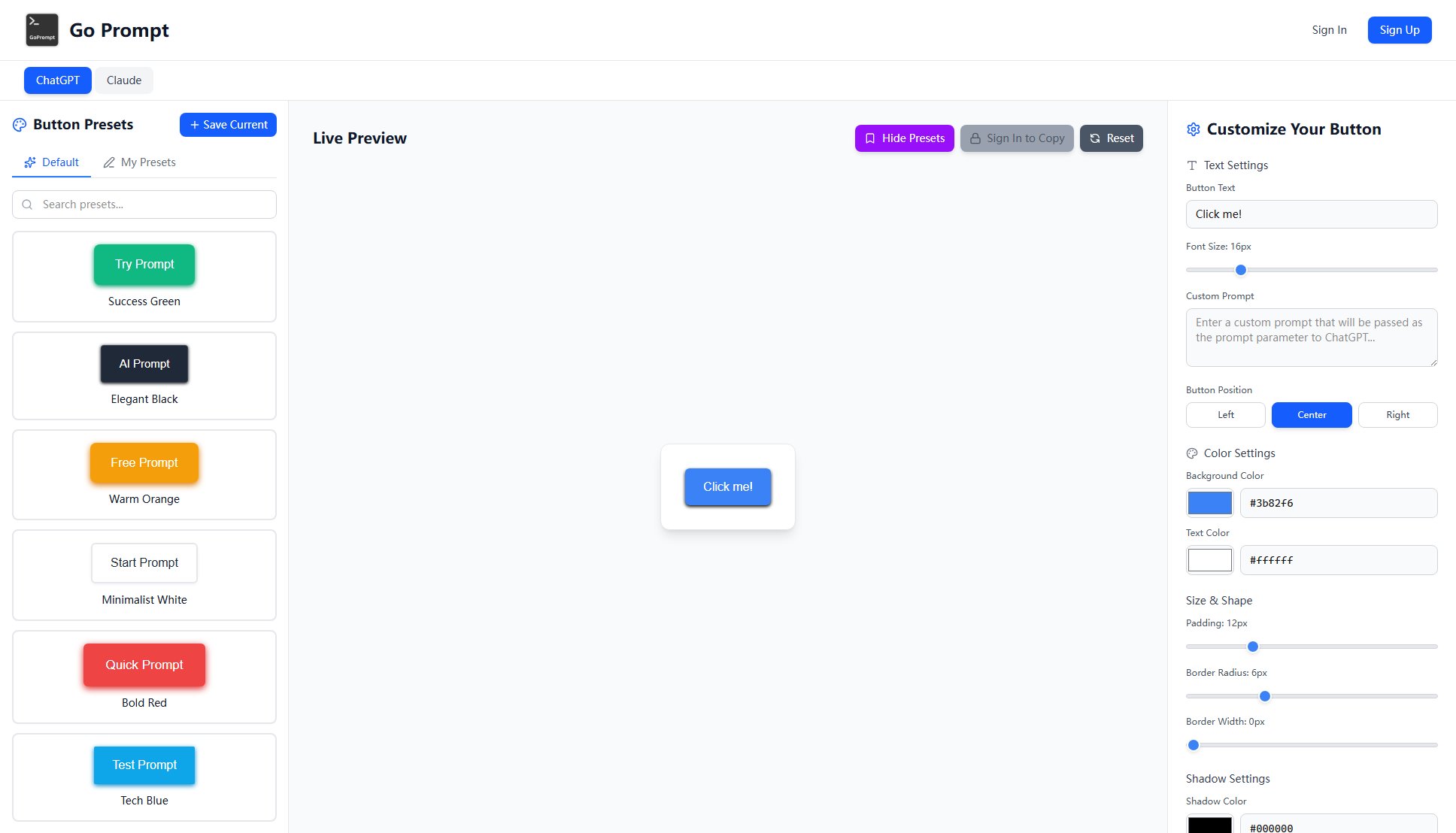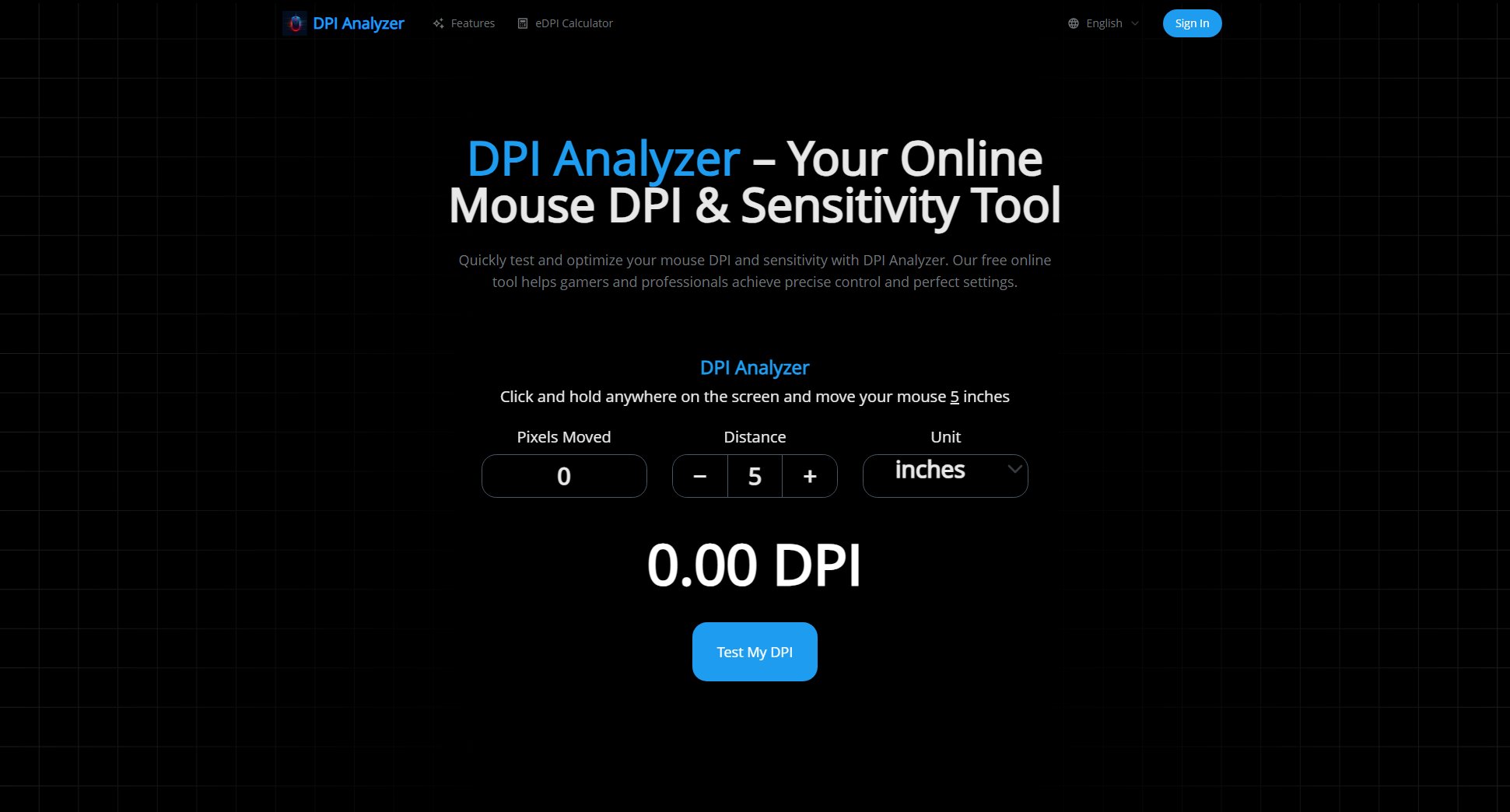Notepad Online
Free text editor with auto-save and multiple format options
What is Notepad Online? Complete Overview
Notepad Online is a simple, fast, and secure online text editor that requires no login. It automatically saves your notes in your browser using HTML5 localStorage API, preventing data loss. The platform offers three editor types: Plain Text Editor for quick notes, Rich Text Editor with formatting tools, and Markdown Editor with live preview. Designed for anyone needing quick text editing without software installation, it works across all modern browsers and devices. Key features include distraction-free writing interface, real-time text statistics, and offline capability after initial load. With no data collection and complete privacy, it's ideal for personal notes, drafts, and quick document editing.
Notepad Online Interface & Screenshots
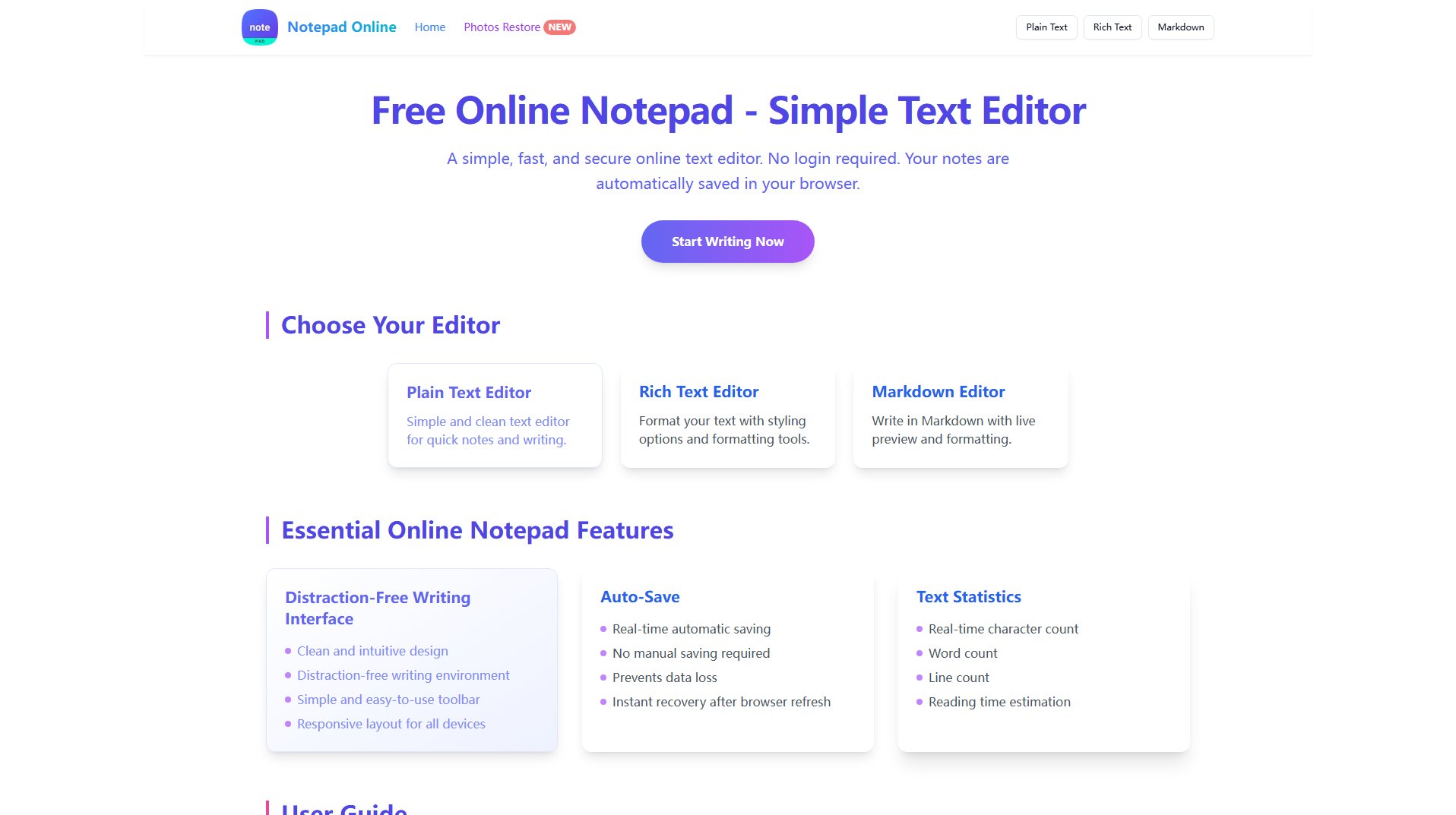
Notepad Online Official screenshot of the tool interface
What Can Notepad Online Do? Key Features
Auto-Save Functionality
Automatically saves your content every second (1000ms) using browser's localStorage. No manual saving required, preventing accidental data loss. Content remains available even after browser refresh or temporary closure.
Multiple Editor Options
Choose between Plain Text (basic editing), Rich Text (formatting tools), or Markdown (with live preview) editors. Each editor maintains separate localStorage, allowing simultaneous work across different formats.
Text Statistics
Real-time counting of characters, words, and lines with reading time estimation. Helps writers track content length and complexity directly in the editing interface.
Export Capabilities
Export documents to multiple formats including PDF, Image, and HTML. Export buttons are conveniently located in the editor's toolbar for quick access.
Distraction-Free Interface
Clean, minimalist design with responsive layout that works on all devices. Simplified toolbar provides essential functions without clutter.
Offline Functionality
Works without internet connection after initial page load. All editing and saving occurs locally in your browser until you choose to export.
Best Notepad Online Use Cases & Applications
Quick Note Taking
Ideal for jotting down ideas, meeting notes, or temporary information without needing to create formal documents or open dedicated apps.
Draft Composition
Writers can draft articles, stories, or emails with formatting options, then export when ready for final editing in other applications.
Markdown Documentation
Technical writers can compose Markdown documents with live preview, perfect for README files or documentation drafts.
Emergency Document Editing
When primary editing software isn't available, provides a reliable alternative with basic formatting capabilities.
How to Use Notepad Online: Step-by-Step Guide
Visit https://notepad-online.co and select your preferred editor type (Plain Text, Rich Text, or Markdown) from the homepage.
Begin typing your content - it will automatically save to your browser's localStorage every second without any action required.
Use formatting tools (in Rich Text mode) or Markdown syntax (in Markdown mode) as needed. View real-time text statistics as you work.
When ready to save permanently, click the export button in the toolbar and choose your preferred format (PDF, Image, or HTML).
For continued editing, simply return to the site - your unsaved content will still be available unless you've cleared browser data.
Notepad Online Pros and Cons: Honest Review
Pros
Considerations
Is Notepad Online Worth It? FAQ & Reviews
Yes, all content is stored locally in your browser using localStorage. No data is transmitted to servers or collected by us.
Clearing browser storage will delete unsaved notes. We recommend regularly exporting important documents.
No, content is stored locally in each browser. For multi-device access, export your documents and transfer them manually.
Yes, including Ctrl+S for manual save, Ctrl+Z/Y for undo/redo, and formatting shortcuts in Rich Text mode.
All modern browsers including Chrome, Firefox, Safari, Edge, and their mobile equivalents. Requires HTML5 support.
